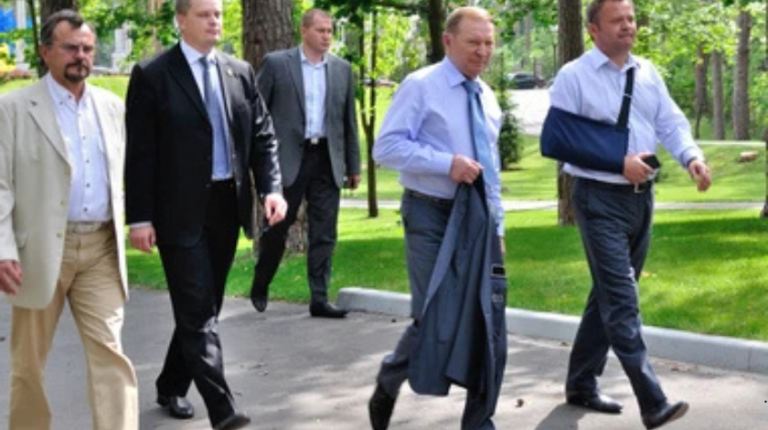Leonid Kuchma, a prominent political figure, served as the President of Ukraine from 1994 to 2005. Understanding his background and significance requires a look into his life, his presidency, and the broader context of Ukraine’s history.
Early Life and Career
Leonid Kuchma was born on August 9, 1938, in the village of Chaikyne in the Dnipropetrovsk Oblast of Ukraine, which at that time was part of the Soviet Union. He pursued engineering at the Dnipropetrovsk National University, where he graduated in 1960. Following his education, Kuchma embarked on a career in the aerospace industry, becoming the director of the Yuzhnoye Design Bureau. His success in this field helped him rise through the ranks of the Communist Party.
Political Ascendancy
Kuchma’s political career began to take shape in the late 1980s, during a period of significant change in the Soviet Union. He was appointed as the Minister of Machine Engineering and later served as the Prime Minister of Ukraine from 1992 to 1993. His tenure as Prime Minister was marked by economic challenges as Ukraine transitioned from a planned economy to a market economy after gaining independence in 1991.
In 1994, Kuchma ran for the presidency and won, succeeding Leonid Kravchuk. His election came during a time of political instability and economic hardship in Ukraine, and he campaigned on promises of economic reform and stability.
Presidency
Kuchma’s presidency is often viewed as a time of both significant progress and considerable controversy. He initiated several reforms aimed at stabilizing the economy, attracting foreign investment, and improving relations with the West. His administration saw some economic growth, particularly in the early years, and he worked towards Ukraine’s integration into international organizations.
However, his presidency was also marked by allegations of corruption, authoritarianism, and human rights abuses. Kuchma faced criticism for suppressing dissent and controlling the media. The infamous “Kuchma tapes,” which allegedly recorded him approving the suppression of opposition, further tainted his presidency.
The culmination of public discontent led to significant political upheaval in Ukraine. The 2004 presidential election, marked by widespread allegations of fraud, triggered the Orange Revolution, a series of protests that eventually resulted in a re-run of the election and the victory of Viktor Yushchenko.
Post-Presidency
After leaving office, Kuchma remained an influential figure in Ukrainian politics. He became involved in various diplomatic efforts and served in advisory roles. His legacy is complex, as he is seen by some as a stabilizing force during a turbulent time, while others view him as a symbol of corruption and authoritarian rule.
Conclusion
Leonid Kuchma’s impact on Ukraine is significant and multifaceted. Born in Ukraine and rising to the highest political office, his leadership during a transformative period in the nation’s history continues to be a subject of discussion and analysis. Understanding his role offers insights into the challenges faced by Ukraine as it navigated its post-Soviet identity and sought to define its path in the international community.
As Ukraine continues to evolve, the lessons from Kuchma’s presidency remain relevant, reminding current and future leaders of the delicate balance between reform, governance, and public trust.

